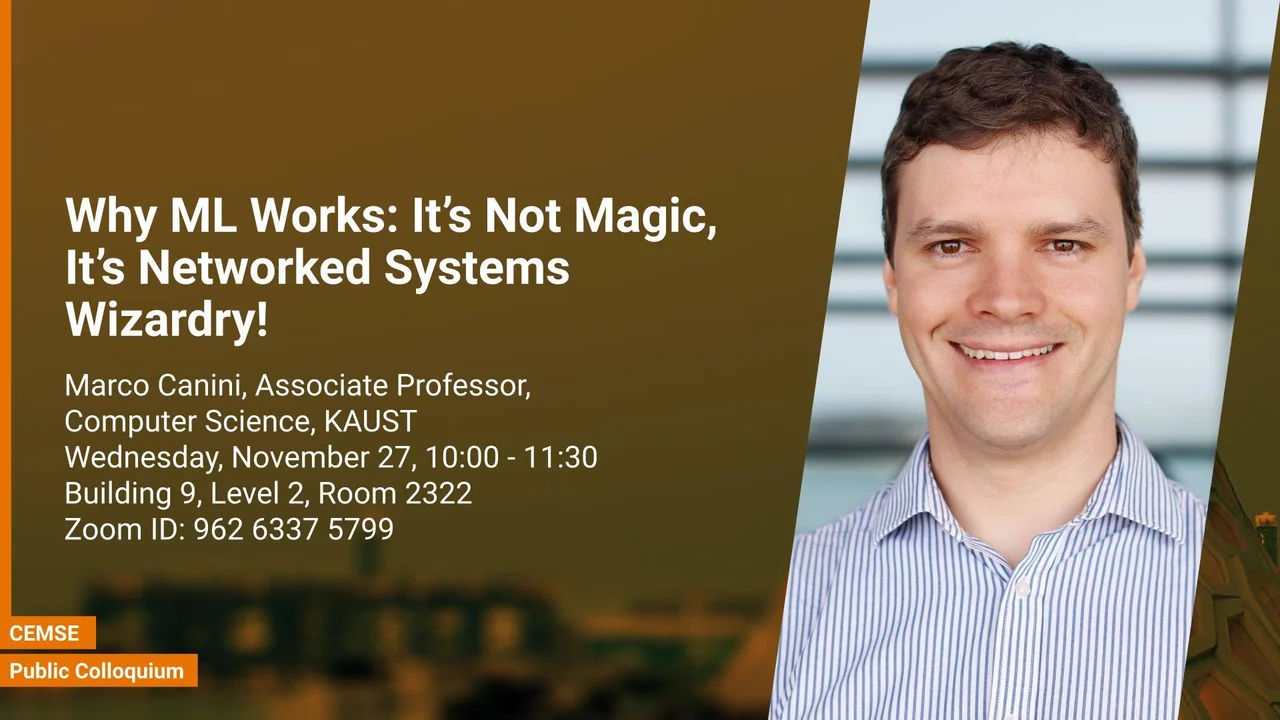
Why ML Works: It’s Not Magic, It’s Networked Systems Wizardry!
Today’s machine learning (ML) solutions are achieving extraordinary success across diverse fields, thanks to their ability to learn complex models and deliver impressively accurate results. While the availability of big data is often credited as a driving force, the unsung hero behind ML’s rise is the rapid innovation in computing and software systems that make these breakthroughs possible and accessible.
Overview
Abstract
Today’s machine learning (ML) solutions are achieving extraordinary success across diverse fields, thanks to their ability to learn complex models and deliver impressively accurate results. While the availability of big data is often credited as a driving force, the unsung hero behind ML’s rise is the rapid innovation in computing and software systems that make these breakthroughs possible and accessible.
To maintain this momentum and meet the demands of next-generation learning systems, we face pressing challenges: achieving scalability, ensuring sustainability, protecting privacy, enhancing safety, and building models that are both robust and explainable. Over the past years, a central theme in my research has been to rethink ML infrastructure. I’ve focused on co-designing ML algorithms and the underlying systems, particularly in networked and heterogeneous decentralized environments, to optimize efficiency, scalability, and deployability.
In this talk, I will review key advancements from my research, and outline a vision for the future of ML infrastructure.
Brief Biography
Marco does not know what the next big thing will be. He asked ChatGPT, though the answer was underwhelming. But he's sure that our future next-gen computing and networking infrastructure must be a viable platform for it. Marco's research spans a number of areas in computer systems, including distributed systems, large-scale/cloud computing and computer networking with emphasis on programmable networks. His current focus is on designing better systems support for AI/ML and providing practical implementations deployable in the real world. Marco is an Associate Professor of Computer Science at KAUST. Marco obtained his Ph.D. in computer science and engineering from the University of Genoa in 2009 after spending the last year as a visiting student at the University of Cambridge. He was a postdoctoral researcher at EPFL and a senior research scientist at Deutsche Telekom Innovation Labs & TU Berlin. Before joining KAUST, he was an assistant professor at UCLouvain. He also held positions at Intel, Microsoft and Google.